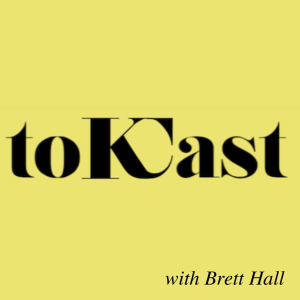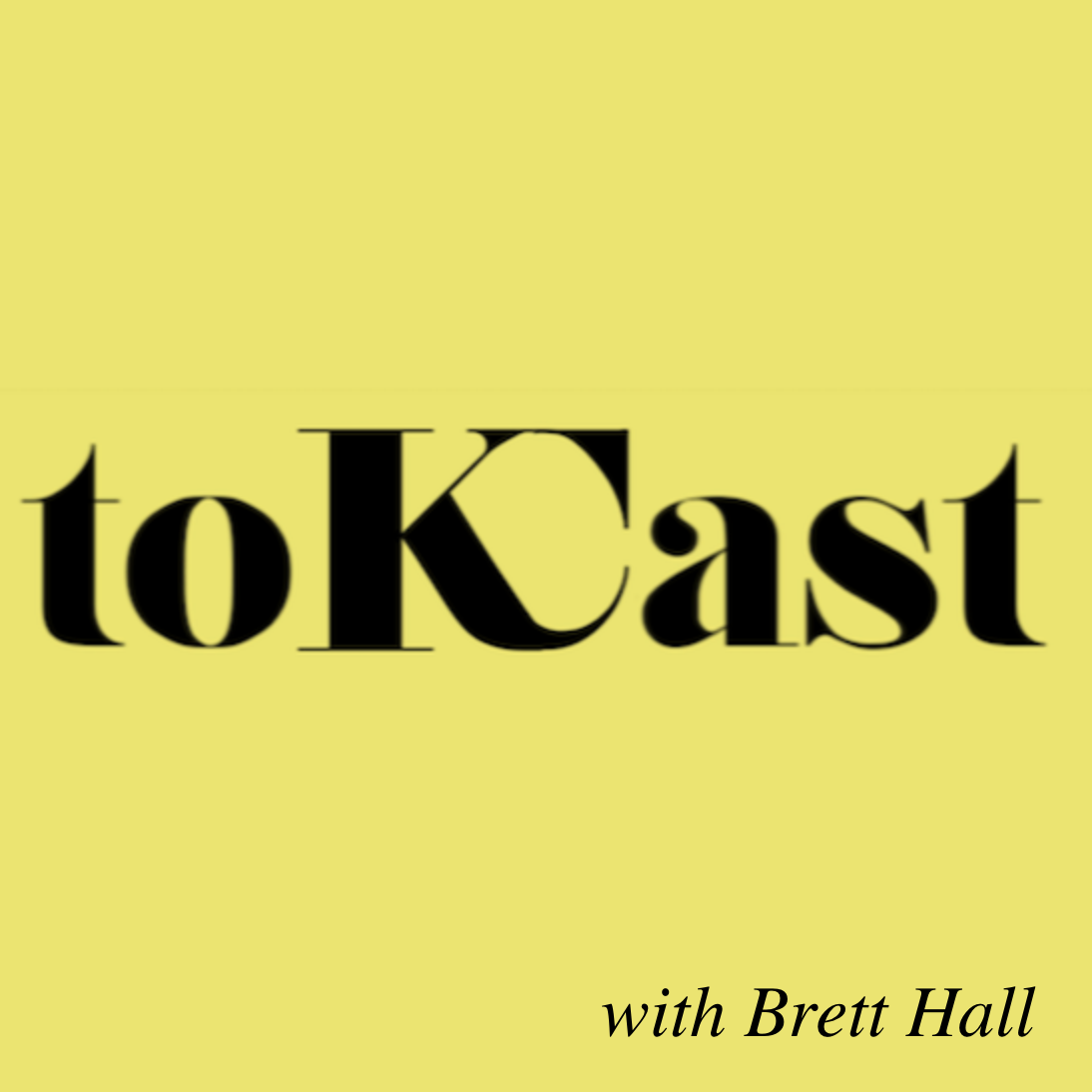Episodes
Episodes



Thursday Sep 22, 2022
Ep 152: ”Observing the facts of reality”.
Thursday Sep 22, 2022
Thursday Sep 22, 2022
Ayn Rand claims we are "observing the facts of reality" when forming concepts. Here I explain why that is wrong and how facts are things we conclude *only at the end* of a long chain of interpretation. This is an excerpt from an episode to be released after this one, also on "objectivist epistemology", and in addition to the previous episode released about "An introduction to objectivist epistemology" by Ayn Rand.



Tuesday Sep 20, 2022
Ep 151: ”Objectivist” ”Epistemology” - The errors of objectivism
Tuesday Sep 20, 2022
Tuesday Sep 20, 2022
Here I read from Ayn Rand's work "Introduction to Objectivist Epistemology" and reflect upon it by comparing it to actual epistemology (how knowledge is created). We explain the misconceptions in the view that knowledge is all about the goings on in minds and how Rand's epistemology is root-and-branch subjectivist. Ayn Rand is an excellent defender of free trade and capitalism, the inherent value of people: her ideas are pro-human and broadly optimistic. However the epistemology is fundamentally flawed containing pure speculation about how people learn (so-called "concept formation") and disconnected from problems in (for example) science and where knowledge is being constructed. Her examples are highly abstract rather than being based in the concrete reality of the history of ideas and for this reasons she reaches the same conclusions as almost all other philosophers on this topic. Namely that knowledge is derived from reality through our senses (empiricism) and is induced by noticing similarities between objects. This is not explanatory, it is not insightful and it is demonstrably false - as I explain.



Friday Sep 16, 2022
Friday Sep 16, 2022
The final episode of readings from "The Science of Can and Can't" by Chiara Marietta. This serves as something of a summary chapter with pointers about the future of Constructor Theory.



Thursday Sep 15, 2022
Ep 149: Meaning
Thursday Sep 15, 2022
Thursday Sep 15, 2022
A version of this on Youtube has music and images as a farewell finale to the "Things that make you go mm?" series. This is about meaning: what is it, is there a meaning for us? Does the question make sense?



Wednesday Sep 14, 2022
Ep 148: Memetics
Wednesday Sep 14, 2022
Wednesday Sep 14, 2022
Rational and anti-rational memes.
Static and dynamic societies.
Diversity of ideas and individuality.
Credit: "The Beginning of Infinity" by David Deutsch



Wednesday Sep 14, 2022
Ep 147: Memes
Wednesday Sep 14, 2022
Wednesday Sep 14, 2022
Minds are the makers of memes; ideas that survive. But how is it memes are replicated and transmitted through a culture? What counts as a meme?



Tuesday Sep 13, 2022
Ep 146: Mindless
Tuesday Sep 13, 2022
Tuesday Sep 13, 2022
The crucial differences between AGI and regular AI: minds vs the mindless. Is "competency" at completing tasks what makes a system "intelligent". I explain why that is, in a deep sense, the opposite to what intelligence may be - or at least the kind of intelligence that is interesting in the I in AGI.



Monday Sep 12, 2022
Ep 145: Minds
Monday Sep 12, 2022
Monday Sep 12, 2022
What is a mind? Can we pin it down? To what do the pronouns "I" and "you" really refer? Is the mind different to its contents? What do we know and what are we struggling still to understand?



Friday Sep 09, 2022
Ep 144: Monarchy
Friday Sep 09, 2022
Friday Sep 09, 2022
Stability under rapid change - progress - has happened rarely in history. It has been sustained only once. In any case it began in Britain? Why? We cannot articulate all the reasons, much of that content remains inexplicit. But we cannot ignore systems of governance - and in that case the constitutional monarchy.
ER II 1926-2022



Thursday Sep 08, 2022
Ep 143: Metaphysics
Thursday Sep 08, 2022
Thursday Sep 08, 2022
What is metaphysics? Is there a point in subscribing to one? Some think believing in certain theories about the way ultimate reality must be is helpful. How is a metaphysical stance consistent with both realism and fallibilism?



Wednesday Sep 07, 2022
Ep 142: Multiverses
Wednesday Sep 07, 2022
Wednesday Sep 07, 2022
In his book "Our Mathematical Universe" Max Tegmark claims we occupy 4 different kinds of multiverse and that ultimate base reality is made of mathematics. I analyse these claims and his 4 levels of multiverse distinguishing between scientific and metaphysical claims by describing possible experimental tests of some of the multiverses - and remark on this desire many express for an ultimate, final explanation of reality.



Tuesday Sep 06, 2022
Ep 141: The Mathematicians’ Misconception
Tuesday Sep 06, 2022
Tuesday Sep 06, 2022
This continues the theme about fallibilism and is a brief recount of David Deutsch's insightful talk given at the award of the 2017 Dirac Medal - found here: https://www.youtube.com/watch?v=J7HeDX_7Heg&t=10096s (cued up to just before David begins speaking) or the transcript available here: http://www.daviddeutsch.org.uk/wp-content/uploads/2018/03/MathematiciansMisconception.pdf This is a very "counter-culture" idea (academic culture, that is) and I feel I get more resistance to this idea than even, for example, The Multiverse.



Tuesday Sep 06, 2022
Ep 140: Mathematics
Tuesday Sep 06, 2022
Tuesday Sep 06, 2022
What is mathematics? Does it provide us with "epistemological bedrock" - a finally, once and for all certainly true foundation?
What does fallibilism say about any of this? Is mathematical knowledge not immune from error?



Monday Sep 05, 2022
Ep 139: Misconceptions
Monday Sep 05, 2022
Monday Sep 05, 2022
This is the first in the series of "Things that make you go mm?" (Get it - shorter!). Minisodes getting to the fundamentals of each of the Mmmms I've been discussing recently. Theories are misconceptions. All our knowledge contains misconceptions - as well as truth.



Sunday Sep 04, 2022
Ep 138: Things that make you go mmmmm? Part 5: Minds II - Part the Second
Sunday Sep 04, 2022
Sunday Sep 04, 2022
This is the second part of "Minds" which is the 5th part of the "Things that make you go mmmmm?" series. In this we encounter some deep misconceptions. What is intelligence? Is it about setting and achieving goals? Can a system be intelligent and yet only obey its instructions? What is the relevance of disobedience? What are the practical moral implications of misunderstanding epistemology?
This is me at my most animated.



Friday Sep 02, 2022
Ep 137: Things that make you go mmmmm? Part 4: Minds - Part the First
Friday Sep 02, 2022
Friday Sep 02, 2022
This is part 1 of part 4 (if you take my meaning) of my "Things that make you go mmmmm?" series. It's called "Minds" and when recording I was unable to anticipate how long it would go for - so I've needed to split it into 2 parts. This is the first.
I discuss what a mind might be, and what intelligence could be thought of as. What, then, is super intelligence? What is supernaturalism? What is creativity? What is the moral status of a person? What are the hazards of guessing at the problems our descendants will have? What are the moral dangers of a false epistemology? Is "super intelligent" and "super unintelligent" a strict contradiction? Does Google plan on test driving their self-driving cars? Yes: all this is discussed and more - hopefully in a somewhat fun way.



Monday Aug 29, 2022
Ep 136: Things that make you go mmmmm? Part 3: Multiverses
Monday Aug 29, 2022
Monday Aug 29, 2022
Yes, that's plural. Multiverses. I have spoken many times before on this podcast about "the multiverse". Indeed it is a central theme of ToKCast and a thread running through both the Fabric of Reality and The Beginning of Infinity. But here we discuss other kinds of multiverse - Max Tegmark's 4 species of multiverse. To what extent do they count as science? Are they testable? Does that matter? I found this one a lot of fun.
As an alternative to Max Tegmark's work on all this, the lesser known but perhaps more specialised Luke Barnes (@lukebarnesastro on Twitter) focusses on Fine Tuning in cosmology. His website https://letterstonature.wordpress.com/luke/ is prolific when it comes to this issue and he takes on the problem from a vast array of perspectives.
This is Sabine Hossenfelder & Luke Barnes debating "The fine tuning of the Universe: Was the cosmos made for us?" https://www.youtube.com/watch?v=5OoYzcxzvvM
And this is him "against" Sean Carroll: https://www.youtube.com/watch?v=nJEWg1ifUCg These discussions with Luke (a relative unknown) up against "celebrity" physicists can be really interesting for a couple of reasons sociologically. Luke's no-nonsense Aussie attitude against a continental European in the first instance and an American in the second instance is just worth noticing for the subtle cultural differences (very subtle perhaps!) and also because Luke, as I say, is highly specialised on this particular problem of fine tuning of the laws of physics. Sabine and Sean understand the basics of this - but it's not their day to day work. It is Luke's and so that difference is telling at times. Finally here is Luke's discussion with Robert Kuhn of "Closer to Truth" - what I said is my favourite Youtube channel (where you can also find discussions with David Deutsch, Jaron Lanier, Paul Davies and well, almost anyone who's anyone in physics/science/cosmology/philosophy: https://www.youtube.com/watch?v=xY7Ck1y1fx4
Also see his page on the Closer to Truth website which has his background and links to lots of his videos: https://www.closertotruth.com/contributor/luke-barnes/profile Luke may be an Aussie, but I don't actually know him personally - I just happen to think he is a particularly cogent voice on these issues!



Sunday Aug 28, 2022
Ep 135: Lookouts
Sunday Aug 28, 2022
Sunday Aug 28, 2022
This episode is an interlude for the "Things that make you go mmmmm?" series. It provides, I hope, some helpful advice for "spotting errors" motivated by my recent readings of certain other "popular science" books where I kept spotting certain errors, mistakes and misconceptions. My conclusion: the writer lacked something like a more coherent worldview. I present a very brief exposition of an alternative: namely to have a coherent worldview and what that could look like.



Friday Aug 26, 2022
Ep 134: Things that make you go mmmmm? Part 2: Mathematics
Friday Aug 26, 2022
Friday Aug 26, 2022
Here I discuss the "mathematician's misconception" from a number of angles: the confusion between mathematical reality - and our knowledge of that mathematical reality. We also discuss why it is mathematics is effective in the natural sciences, like physics and whether and to what extent physics must reduce to mathematics in some ultimate sense. In the discussion between Sam Harris and Max Tegmark here, they are really probing the border between metaphysics and physics.



Thursday Aug 25, 2022
Ep 133: Things that make you go mmmmmm? Part 1: Many Misconceptions
Thursday Aug 25, 2022
Thursday Aug 25, 2022
This is the first episode of a new series about the multiverse, mathematics, morality, mind, metaphysics, M-theory, misconceptions, mistakes and much more. It is prompted by an episode of "Making Sense" where Sam Harris' spoke with physicist Max Tegmark. I am using that more as a prompt than anything else to give my own views on the wide range of topics they cover there and present a different perspective on what they discuss there. Sam's own "intuitions" are challenged at times by Max's and I want to go a few steps further still in challenging even our intuitions about intuitions...among other things. It's a lot of fun and in keeping with the M-theme, there's even minuscule musical moments.








